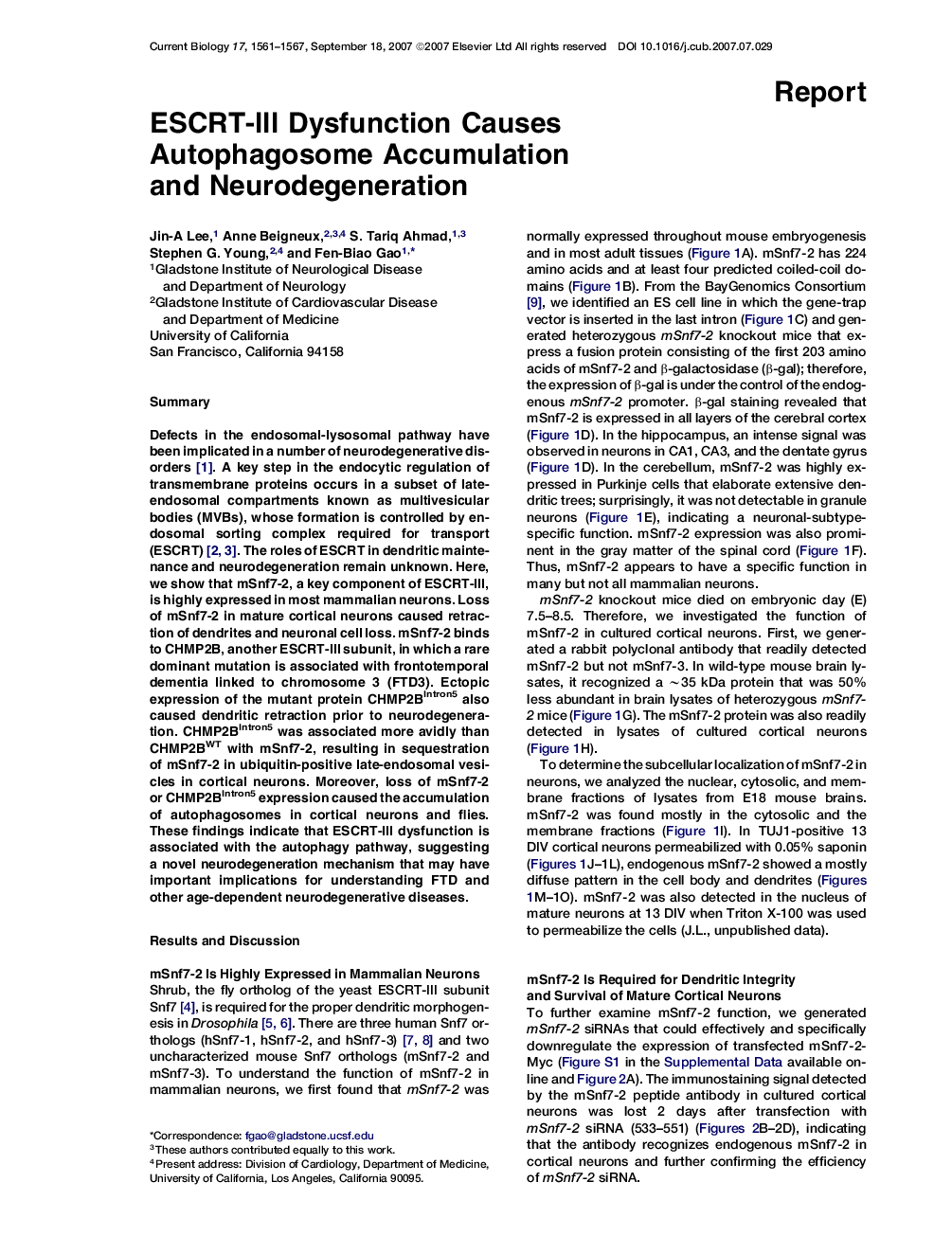| Article ID | Journal | Published Year | Pages | File Type |
|---|---|---|---|---|
| 2045143 | Current Biology | 2007 | 7 Pages |
SummaryDefects in the endosomal-lysosomal pathway have been implicated in a number of neurodegenerative disorders [1]. A key step in the endocytic regulation of transmembrane proteins occurs in a subset of late-endosomal compartments known as multivesicular bodies (MVBs), whose formation is controlled by endosomal sorting complex required for transport (ESCRT) 2 and 3. The roles of ESCRT in dendritic maintenance and neurodegeneration remain unknown. Here, we show that mSnf7-2, a key component of ESCRT-III, is highly expressed in most mammalian neurons. Loss of mSnf7-2 in mature cortical neurons caused retraction of dendrites and neuronal cell loss. mSnf7-2 binds to CHMP2B, another ESCRT-III subunit, in which a rare dominant mutation is associated with frontotemporal dementia linked to chromosome 3 (FTD3). Ectopic expression of the mutant protein CHMP2BIntron5 also caused dendritic retraction prior to neurodegeneration. CHMP2BIntron5 was associated more avidly than CHMP2BWT with mSnf7-2, resulting in sequestration of mSnf7-2 in ubiquitin-positive late-endosomal vesicles in cortical neurons. Moreover, loss of mSnf7-2 or CHMP2BIntron5 expression caused the accumulation of autophagosomes in cortical neurons and flies. These findings indicate that ESCRT-III dysfunction is associated with the autophagy pathway, suggesting a novel neurodegeneration mechanism that may have important implications for understanding FTD and other age-dependent neurodegenerative diseases.
